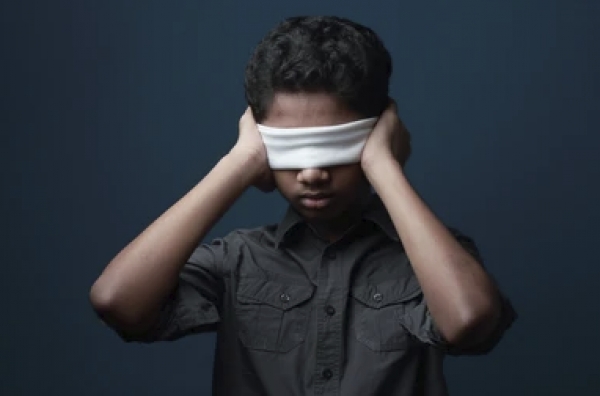Days before one of the most important exams a young student will face, the Ministry of Education has shaken the world of a young dyslexic student by refusing to allow him a Reader and a Writer.
Instead, the child had been offered Braille and the parents told they would be able to help him into his seat. “For a moment we thought they had mixed up the letter with that which should have gone to a blind student,” his parents said on a social media post.
They detailed how, during an inquiry with the Dept. of Exams on Feb 24 - days before the exam, one of the people on the panel, “asked my son to remove his mask, and kept looking closely at his face, obviously looking for a physical sign of his condition.”
“The other person sitting with him wanted to know if his eyesight was checked and if he had tried wearing spectacles. This person equally clueless as well about dyslexia,” the parents said. “My son is sitting for his local O/Levels on Monday 8th March . He was diagnosed as being within the dyslexic spectrum at the age of 7. In preparation to get the accommodations afforded to children with special needs/learning difficulties, we took him to be assessed by Dr Samanmali Sumansena at the Ragama Teaching Hospital in 2018, who reconfirmed his condition. She recommended he be guided by a specialist in the field so he can face public exams under the accommodations provided for dyslexics and referred him to Dr Tamara Handy.”
It was with this support, and the support of the school, that this young students spend the last many years facing his school exams. Now, days before his first public exams, the support he has been given in the form of a Reader and Writer has not been afforded to him. The reports of 4 experts over the last 9 years had been dismissed by the authorities at the Dept. of Exams, based merely on the fact that the child did not "look" as though he had learning disabilities.
After much wrangling, the parents have now been told their child will be permitted a Writer but this will do little to solve the issue.Dyslexia is a specific learning difficulty, which causes problems with reading, writing and spelling and people on the spectrum have more difficulty with reading, internalising and writing - although intelligence isn't affected . There are approximately 7% people affected by dyslexia in Sri Lanka, although the UK’s NHS estimated up to 1 in every 10 people in the UK has some degree of dyslexia. But while Dyslexia is a lifelong problem that can present challenges on a daily basis, support is available to help those with the problem be successful at school and work. This is the support that has been denied this young student, just days before his OL.










